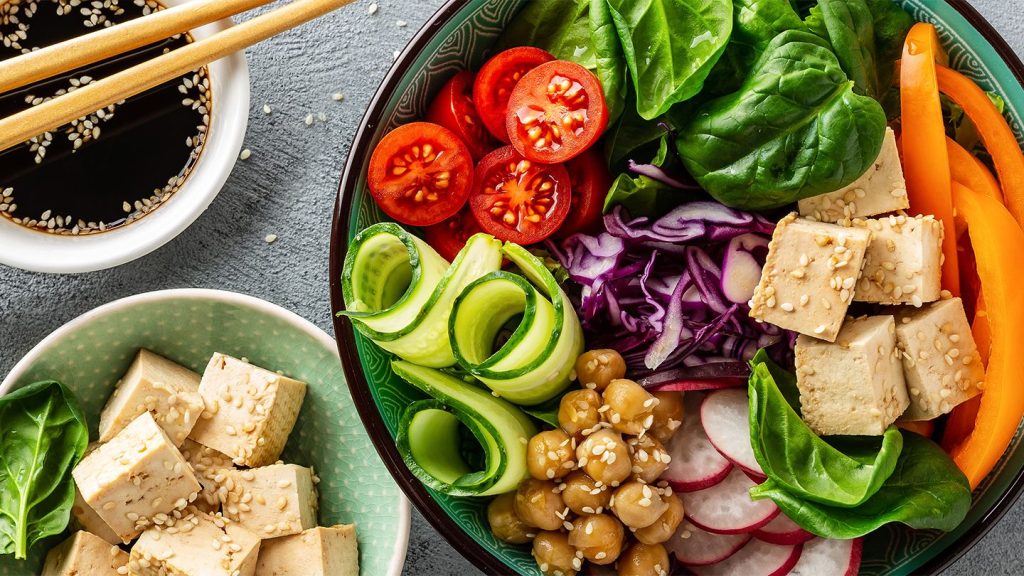Bookmark this blog for the supplements to take and deficiencies to watch out for when you go Vegan!
Research shows that plant-based diets are naturally high in fibre, low in saturated fat, and rich in phytochemicals that help prevent a number of serious diseases. The results of an international study even revealed that vegetarians are a whopping 40% less likely to develop cancer than their meat-eating counterparts. However, a vegan diet comes with its own set of drawbacks, the number one being vitamin deficiencies.
Risks of cutting out animal products
Completely cutting off animal products might make you deficient in Vitamin B, and minerals and reduce your sources of protein. Meat is considered ideal for reducing appetite and increasing metabolism, the protein helps with the retention of muscle mass, stronger bones and reduced risk of fractures.
The iron available in meats has a higher rate of absorption than plant-based sources of iron. Fish and seafood are a source of vitamin D and minerals such as phosphorus and iodine. Eating seafood has been linked to a lower risk of many health conditions, including CHD, depression, and liver cancer.

Here’s why being mindful of the deficiencies linked with a vegan diet can be helpful. Supplements and alternate food sources can come help avoid extreme deficiency-caused symptoms or diseases.
Essential nutrients to watch out for
Vitamin B12
An essential vitamin that helps the body’s blood and nerve cells to keep them healthy and creates DNA, the genetic material in all of our cells.
This vitamin is created by bacteria found primarily in animal products such as dairy, meat, insects, and eggs, one needs to intentionally add plant foods fortified with B12 like nutritional yeast and plant milk to avoid deficiencies.
Vitamin D
The sunshine vitamin is vital for bone health. It regulates the amount of calcium and phosphate in the body. These nutrients are needed to keep bones, teeth and muscles healthy and a lack of vitamin D can lead to bone deformities such as rickets in children, and bone pain caused by a condition called osteomalacia in adults.
Fortified soy milk, mushrooms, fortified cereals, fortified cereals, almond milk and 10-30 minutes of sunshine per week before 7 AM can be extremely beneficial.
Zinc
Zinc can be found in many beans, legumes, and whole grains but the phytic acid found in these plants can hinder zinc absorption. Zinc helps our immune system and metabolism function. It is also important to wound healing and your sense of taste and smell. With a varied diet, your body usually gets enough zinc.
Omega-3 Fatty Acid
A vitamin that has few plant-based sources, Omega-3 is important for heart health and to reduce the risk of cardiovascular diseases. It also reduces the risk of blood clots because omega-3 fatty acids help prevent blood platelets from clumping together. It also brings down inflammation and lowers triglyceride levels. It also helps with immunity and improves endocrinal functions.
Include different algae like seaweed, nori, spirulina, walnuts, soybeans, kidney beans, chia seeds, hemp seeds and flaxseeds to add essential fatty acids to your diet.
People who cannot meet their omega-3 dietary requirements and those who experience high levels of inflammation may benefit from taking omega-3 supplements.
Overall, plant-based diets are great for your gut, immune system, and heart health and are devoid of saturated fats but it is important to know that if we ignore certain food groups, we might miss out on some essential nutrients which can cause issues. The best way to proceed is to have your nutritionist review your meals and caloric intake and recommend supplements to avoid deficiencies and related diseases.























Share this article